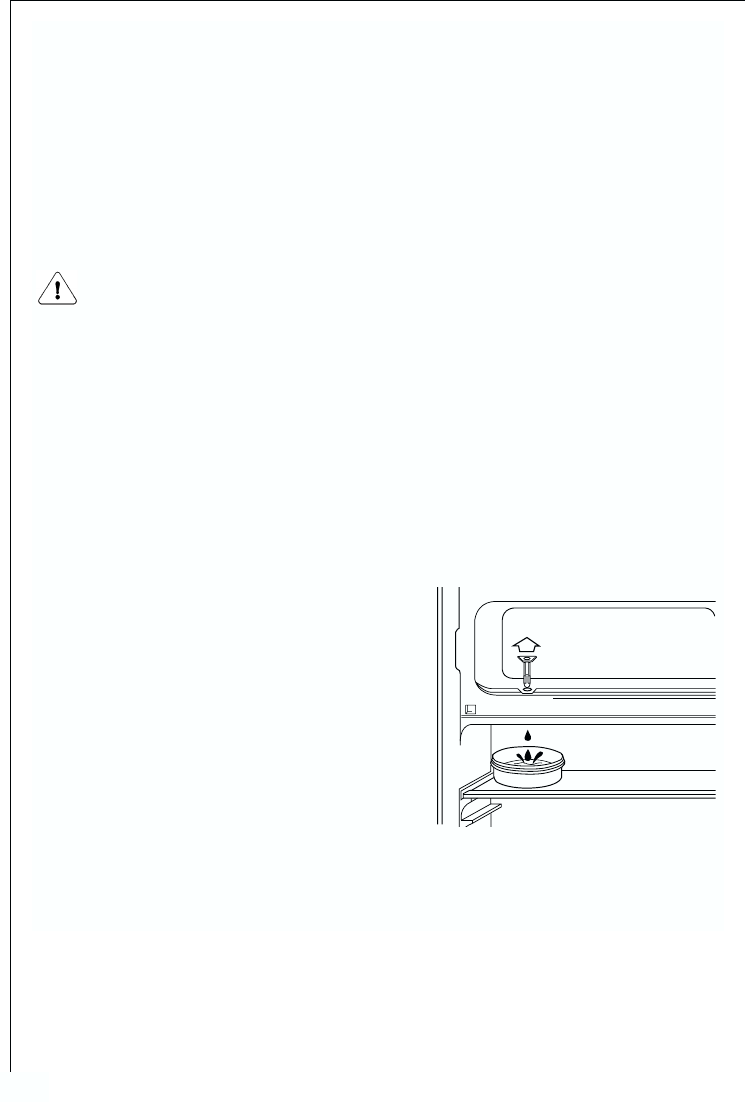
18
Defrosting
Defrosting the Freezer Compartment
During use and when the freezer compartment door is opened, mois-
ture is deposited in the freezer compartment as frost. Remove this
frost from time to time with the soft plastic scraper. Under no circum-
stances use hard or pointed objects to remove frost.
The freezer compartment should always be defrosted when the layer of
frost has reached a thickness of approx. 4 millimetres; however at least
once a year. A good time for defrosting is when the appliance is empty
or contains only a small amount of food.
Warning!
• Do not use electrical heating appliances or any other mechanical or
artificial devices to speed up the defrosting process, with the excep-
tion of those recommended in these operating instructions.
• Do not use defrosting sprays, they can be hazardous to your health
and/or contain substances that damage plastics.
Caution! Do not touch frozen food with wet hands. Your hands could
stick to the food causing skin abrasions.
☞
1. Remove frozen food, wrap it in several layers of newspaper and store
it, covered, in a cool place.
2. Switch off the appliance and unplug it, or disconnect from the elec-
tricity supply.
3. Remove the stopper from the meltwa-
ter outlet and place a bowl under-
neath it to catch the meltwater.
Tip: You can speed up the defrosting
process by placing a plastic bowl with
warm water in the freezer compart-
ment and closing the doors. Remove
pieces of ice that have fallen before
they completely defrost.
4. After defrosting, thoroughly clean
the freezer compartment ( see "Cleaning and Care" section).


















